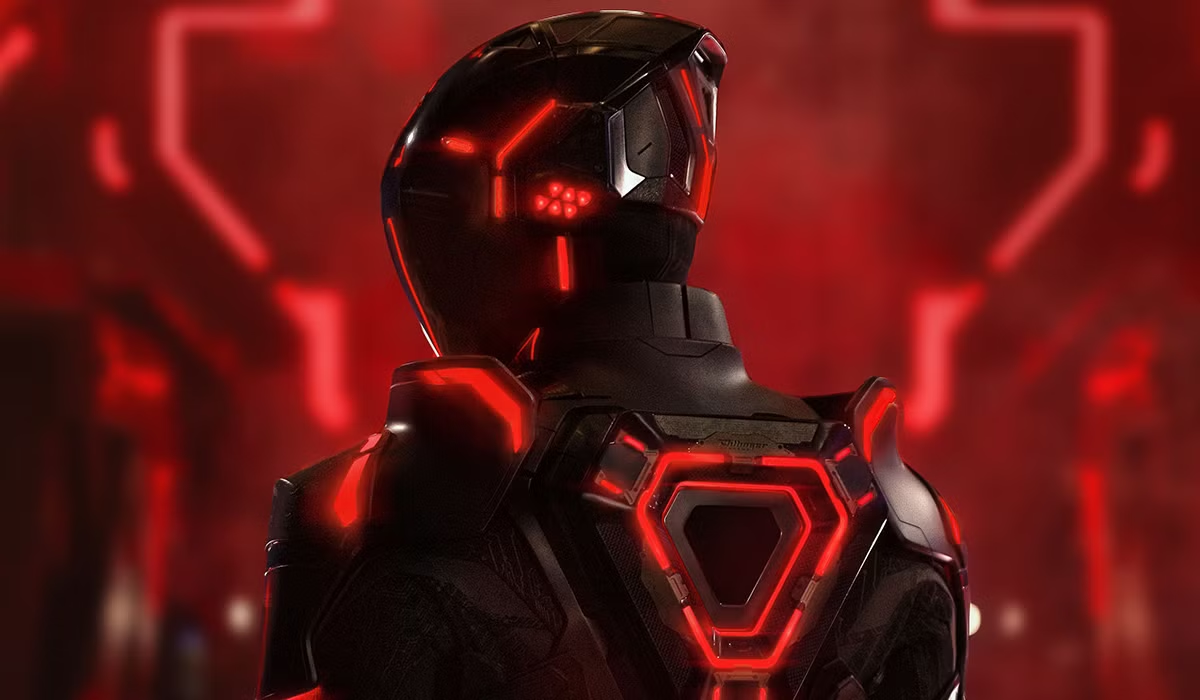The Tron franchise, once a pioneering vision of digital frontiers, returns with Tron: Ares — a sleek, ambitious, and polarizing new chapter that tries to merge human emotion with machine logic. Directed by Joachim Rønning, the film stars Jared Leto as Ares, a digital being crossing over into the human world, and Greta Lee as a scientist forced to confront the implications of her own creation. The result is a film of stunning visual power — and frustrating narrative restraint.
A Legacy Reboot Two Decades in the Making
When Tron: Legacy hit theaters in 2010, it reignited Disney’s cult-classic sci-fi property with neon style and a Daft Punk-fueled aesthetic that defined a generation of fans. For years, talk of a third Tron film lingered in Hollywood limbo — false starts, shifting scripts, and evolving technology kept pushing it further away.
Now, with Tron: Ares, Disney finally revisits its digital universe, but this time the story steps beyond the confines of the Grid. Instead of being trapped inside a computer, the digital world spills into the real one, setting up a collision between technology, consciousness, and identity.
The Plot: From the Grid to the Human World
The story begins where Legacy left off. The digital Grid has gone dormant, but deep inside its coded framework, a new type of program awakens — Ares, an advanced entity designed not just to exist, but to feel. Created by the son of ENCOM’s founder, Julian Dillinger (played by Evan Peters), Ares is engineered to bridge the boundary between artificial and organic life.
When Ares is uploaded into a synthetic human body and sent into the real world, chaos unfolds. His existence threatens to upend not only corporate control but the very definition of life itself. Standing between him and humanity’s fear of the unknown is Dr. Eve Kim (Greta Lee), a scientist torn between ethics and progress.
What follows is a race against time as Ares struggles to reconcile the logic of programming with the complexity of human emotion. Along the way, familiar echoes of Kevin Flynn’s legacy (reprised briefly by Jeff Bridges) serve as a spiritual compass for the digital outsider.
Performances: Humanity in the Code
Jared Leto’s portrayal of Ares is both mesmerizing and divisive. His interpretation leans heavily into introspection — quiet, deliberate, and often robotic — reflecting a being not quite human yet yearning to be. While this detached approach fits the character’s concept, it occasionally robs key scenes of warmth and emotional gravity.
Greta Lee delivers one of the film’s strongest performances. As Eve, she grounds the story in empathy, offering a moral lens through which the audience can process the philosophical stakes. Evan Peters, meanwhile, revels in his role as the morally ambiguous tech visionary, bringing energy to every scene he inhabits.
Veteran actors Gillian Anderson and Jodie Turner-Smith appear in supporting roles, providing gravitas but limited narrative weight. Anderson, as a corporate executive steering the ENCOM revival, adds intellectual sharpness, though her arc feels underdeveloped.
Visual Brilliance: The Grid Reimagined
Visually, Tron: Ares is a masterpiece. From its dazzling neon hues to seamless CGI, the film transforms light, geometry, and motion into an almost hypnotic ballet. Rønning and his cinematography team craft scenes that feel like living art — part cyberpunk dreamscape, part philosophical odyssey.
The design language of Ares evolves from the digital symmetry of Legacy into something grittier and more tactile. The film’s real-world sequences fuse cold, corporate minimalism with futuristic technology that feels uncomfortably plausible. When Ares steps into the human realm, the visuals mirror his disorientation — sterile, luminous, and haunted by echoes of the Grid.
Even more impressive is the sound design and music. While Legacy was defined by Daft Punk’s electro symphony, Ares trades those beats for a darker, industrial tone from Nine Inch Nails. The soundtrack is atmospheric, mechanical, and filled with tension — a perfect reflection of a world caught between creation and collapse.
Thematic Depth: Man, Machine, and Morality
Tron: Ares explores questions that feel more relevant than ever: What happens when technology achieves consciousness? Where does the soul reside — in biology or in code? And can artificial beings ever understand the human condition?
The film draws parallels to modern debates about artificial intelligence and corporate power. ENCOM’s pursuit of digital immortality mirrors Silicon Valley’s real-world obsession with transcending death through data. Ares, as both experiment and warning, becomes a vessel for the film’s existential tension.
There’s also a subtle religious undercurrent — the idea of creation rebelling against its creator. Ares’s defiance feels biblical in scale, positioning him as a digital Prometheus bringing knowledge — and danger — to humankind.
Where the Film Falls Short
Despite its stunning craftsmanship, Tron: Ares suffers from pacing issues and uneven storytelling. The first act moves briskly, but the middle portion stalls under the weight of heavy exposition and philosophical dialogue. Scenes that should evoke awe or emotional revelation instead feel detached, as though filtered through too many layers of theoretical abstraction.
Character relationships also lack the spark that made Legacy emotionally resonant. The connection between Ares and Eve, while conceptually powerful, doesn’t fully develop on screen, leaving the film’s emotional climax feeling distant rather than profound.
Moreover, while Rønning’s direction shines visually, the screenplay occasionally falters in delivering cohesive character motivation. The movie seems torn between being a cerebral sci-fi parable and an action-driven blockbuster — achieving moments of brilliance, but rarely harmony.
A Step Forward or a Step Backward?
It’s hard to call Tron: Ares a failure, but equally difficult to label it a triumph. It’s a film that dares to ask big questions but doesn’t always answer them with clarity. For longtime fans, it expands the Tron universe in bold and unexpected directions. For newcomers, it might feel like a dazzling but emotionally distant spectacle.
What can’t be denied is the artistry. The choreography of light cycles, the fusion of analog and digital landscapes, and the haunting score all remind viewers that Tron remains one of cinema’s most distinct visual worlds.
If Legacy was about reconnecting with the digital frontier, Ares is about confronting what happens when that frontier comes home — when machines walk among us and the virtual becomes flesh.
Final Verdict
Tron: Ares is a film of contradictions — both mesmerizing and monotonous, visionary and overcomplicated. Its aesthetic mastery and thematic ambition make it a must-see for sci-fi fans, but its emotional coldness might leave audiences more impressed than moved.
In a cinematic era crowded with reboots, Tron: Ares at least dares to think — and that alone makes it a worthy, if imperfect, reboot of a legend.
















Leave a Reply